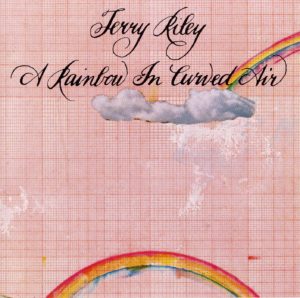On the narrative arc
[ by Charles Cameron — a recent Wapo example of how history gets bent (ever so slightly) out of shape to serve narrative ]
.
One of the universal arcs, and a personal favorite
**
Story-telling shapes awareness.
Yesterday’s Washington Post has an article titled Patriots at the gate: The Americans preparing for battle against their own government. It’s an interesting overview, but I’m not interested in discussing the merits or demerits of the Patriot Movement, Southern Poverty Law Center, Oath Keepers, Waco, Ruby Ridge, Oklahoma City, the Bundy Ranch, or Malheur — what interests me is the way the story is told.
Here’s the section dealing with one participant:
Across the family-style table, Alex McNeely, 25, a drywaller and “avid YouTuber,” said he became interested in the patriot movement online and joined the group to feel that he was helping to defend the country.
“There’s this D.C. mentality that if you stand up for your rights, you’re dangerous and anti-government,” said McNeely, who has an AK-47 assault rifle tattooed on his forearm. “But if I’m denied my rights, what else can I do? Am I just going to stand there and take it, or am I going to do something?”
In the Constitutional Guard, McNeely said: “I feel what we do is stand up for people who don’t have the means to stand up for themselves. I have an overwhelming desire to help people.”
They have passed out more than 2,000 pocket-size copies of the Constitution that Soper said he bought for $500, sent food and clothes to victims of forest fires in Washington state and Oregon and given Christmas presents to more than three dozen children in need.
McNeely considered joining the military when he graduated from high school, but he turned 18 the month Obama was elected in 2008, and, because of Obama’s “socialist” policies, “I wasn’t going to accept him as my commander in chief.”
“I don’t like that he wants to fundamentally change America,” McNeely said.
**
The writer is Kevin Sullivan, a WaPo Senior correspondent, and I think we can safely assume he knows his trade. My interest focus on the sentence:
“There’s this D.C. mentality that if you stand up for your rights, you’re dangerous and anti-government,” said McNeely, who has an AK-47 assault rifle tattooed on his forearm.
Sullivan has already given his opening identification of McNeely —
Across the family-style table, Alex McNeely, 25, a drywaller and “avid YouTuber,” said he became interested in the patriot movement online and joined the group to feel that he was helping to defend the country
— that’s fair enough, and the bit about the “AK-47 assault rifle tattooed on his forearm” could have gone in there, or been added to the graph:
McNeely considered joining the military when he graduated from high school, but he turned 18 the month Obama was elected in 2008, and, because of Obama’s “socialist” policies, “I wasn’t going to accept him as my commander in chief.”
where the topic is his consideration of “the military” — but no, Sullivan posts it neither where he’s introducing McNeely nor where he’s talking about his thoughts about the military, but in the graph discussing the Patriot Mov ement ideals as McNeely describes them — see, once again:
“There’s this D.C. mentality that if you stand up for your rights, you’re dangerous and anti-government,” said McNeely, who has an AK-47 assault rifle tattooed on his forearm.
**
Sullivan wants the irony. He’s making a juxtaposition-with-purpose — long-time readers here will know that juxtaposition as a rhetorical device is a keen interest of mine — he’s linking the movement’s ideals with the AK-47 tattoo to add an inflection of irony.
It’s a tiny point — no more than an inflection — but it’s one that I note in the same way I noted the non-appearance of bin Laden‘s Qur’anic epigraph in media versions of a significant speech, in my post Close reading, Synoptic- and Sembl-style, for parallels, patterns. I don’t happen to share McNeely’s worldview, nor that of bin Laden, but I am deeply interested in the ways the media portray matters of substance and nuance. I am interested in “narrative”.
We’ve all heard MLK’s quote, “somehow the arc of the moral universe is long but it bends toward justice.” The arc of narrative has another aim: it bends towards “good reading” — and if the curve bends fast enough it will spiral ever more lightly and less helpfully in, and we wind up with “click bait”. I know this, because I practice my own version of the dark (and sometimes, brilliantly illuminating) art of writing.
**
There’s a lot more to say about narrative, and the various meanings it now has.
One of my own interests is the way in which we think a narrative can be spun out of words and images (aka “propaganda”), when facts, grounded realities, history may, as they say, tell a different tale — and facts may speak louder than words. In that sense, if we need a new narrative, we may need a new behavior, a new policy, a new strategy implemented, to speak it.
What interests me here though, getting back to the WaPo piece and McNeely, is how telling a story in a way that makes it a “good read” influences a narrative arc that is, significantly, also the arc of “the first draft of history”.



